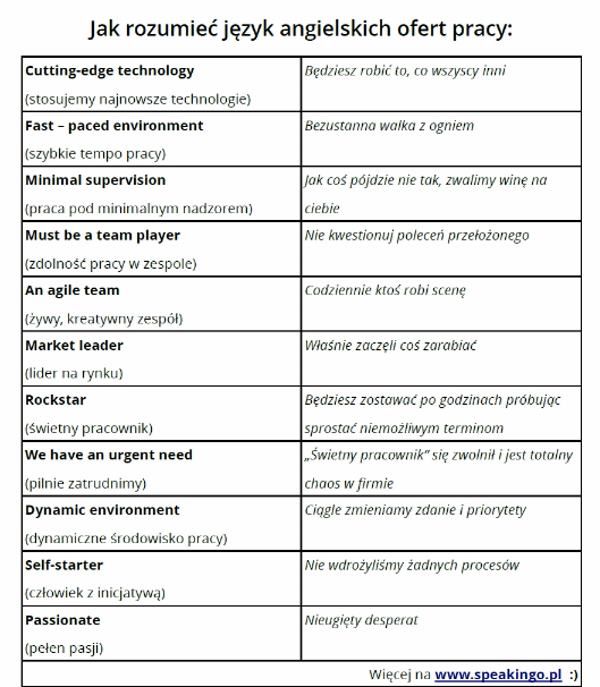What scientific research says about learning English fast?
Everything is happening faster and faster, the world is spinning faster and faster. Despite the assurances of hoaxers from miracle weekend English courses, when it comes to learning English quickly, we get the impression that our brains have not yet moved from the analog to digital era. Does this mean that, according to the rapidly developing world of science, learning English quickly is not possible at all? Not necessarily! Here are five scientifically proven ways to learn faster!
Learning English fast according to science
There are many methods of learning English, each student and teacher has his favorite approaches. However, these opinions are not always based on hard evidence from reliable scientific studies. Therefore, most of the revelations about the next miracle method of learning English can be taken with a pinch of salt.
However, this does not mean that science has not made any progressoin the field of cognition the process of learning and remembering. Although our knowledge of mozg and consciousness is much smaller than we commonly think, for example, we have already learned a lot about howow hat learning English improves mozgu.
5 scientifically proven waysoIn the rapid study of the English language:

1. Listen to as many sentences as possible in English
What mowi science: researchers describe one very nice wayoin learning English, ktory call unconscious (English unconscious) or implicit, deducible (English implicit). The good news is that if we listen to a conversation in English, we are willingly or unwillingly learning the language. It definitely sounds like an unreliable advertisement „quick English learning for lazy people”. However, learning mosees that it is not at all impossible.
This type of English learning does not require conscious effort, breaking your head over grammatical rules. We don’t even have to pay too much attention to the English sounds in the background. Nevertheless, our mozg automatically absorbs the English language around it, słowka, grammar and accent.
As strange as it may sound, this is a phenomenon confirmed by numerous scientific studies, o ktorych in English you can read more on Science Direct or in the psychological scientific press. Interestingly, scientists have verified that even a non-existent language can be learned this way, whichory came up with for the experiment!
One explanation for this phenomenon is the theory that we learn language from a pattern ofoin it. Therefore, there are also methods of learning English (for example, Speakingo online English course), whichore based precisely on learning whole phrases and not dry grammar.
This is the most natural approach to learning English – this is how children learn it. Before they start babbling, they just listen. Just listening to them will take a long time, however, already wkrotce will be fluent mowić without learning a single grammatical rule! For more on this, see point five.
How does learning English quickly look like based on this scientific knowledge?
Listen to everything in English, as it flies and as much as possible! Listen without interruption. It doesn’t matter that you don’t understand anything. Turn on the BBC radio and let it fly all day in the background. Only after you learn English will you perhaps discover what a blessing it was not to understand them to bolu politically correct news 😉
Oprocz then there is English and American television, English music or audio books (you can start with those for children, or re-editions in plain English).
Visit places where mowi nglish, whether it’s an English pub in your town or a vacation in Dover.
The best part is that you don’t have to sit like a peg and just listen. Turn on something in English on your way to work, on a walk, on a long car ride, at the gym, reading a book, in the workshop or washing dishes.
Whatever the case may be, learning English quickly becomes possible if only English continually strokes your ears!

2. Sift out the impossible sounds
What mowi science: one of the more difficult things about learning English is a whole new range of soundsow. English „a” is not the same as Polish „a”, Therefore, students with rożnych countryoat the moinvolve the so-called „accent”. Interestingly, if there is no sound in our languageoIn language, whichorego we are just learning, our mozg will develop and produce new neurons that allow rozrożniać sounds, whichore hitherto merged into one.
The good news, however, is that even children learning English understand that certain sounds simply do not ascend in the language. Researchers have discovered that we have an innate talent for this and understand if a word is not right.
For example, in English there are many wordsoin beginning with „bl” (black, blink, blue). Prohowever, to look for a wordoin starting with „lb”. If we listen to English a little, no one will have to explain it to us, we will know it intuitively.
What does it look like to quickly learn English based on this scientific knowledge?
Sift out sounds and words, ktore sound ridiculous. Probably Twoj conversationowca twisted something, maybe a word fell into itowko from his native language.
It can help you a lotoc in writing: if you are confused about how to write the word ghost, sprobuj write hgost – It is immediately clear that the latter option is impossible in English.
Another practical tip for learning English soundsoin unheard in Polish is to listen to recordings at a slow pace. You don’t need expensive hardware or software for this, you can do it with any video on Youtube – just click on „pinion” the bottom right corner of the video and reduce the „playback speed” to e.g. 0.25 normal speed (that is, four times slower).
Paradoxically, slow listening is fast English learning. A Twoj mozg during this time will build new neurons for itself.

3. Learning English by association
What mowi science: when we build associations, combine new wordsowka with other words, sounds, movement, ideas or images. When we think of kitten (in English cat) then immediately our beloved furry one comes to mind, maybe we hear a delightful purr, or feel the touch of soft fur in our hand. What association we make is largely determined by whether we are auditory, tactile or visual. We don’t build associations just for the fun of it, we just then remember more easily.
If you have heard about quick memorization techniques, ways of repetition e.g. of dozens of words just heardow from memory, these techniques are based on associations precisely. Researchers have found that even when learning sign language, if a hand gesture resembles an object, it is much easier to remember it.
How does it look like to learn English quickly based on this scientific knowledge?
When you learn a new word, sproimagine them, engaging as many senses as possibleow. You can build a whole story to it. Also use the courseow, ktore engage sight, hearing, touch, build associations and do not give dry wordsowek to forge, but put them in a meaningful context. For example, Speakingo online English course.
Oprocz of this you can use Googling – Instead of looking up the verbal definition, click on images to show you what the word looks like. When you see some exampleow of a given phenomenon, often also quite unusual, it will be easier to remember the word.
Sometimes, too, instead of writing a definition or writing down a translation, you might want to draw a word for yourself.

4. Memorize repetitive patterns not rules
What mowi science: One hundred thousand years ago, if a tiger ate your friend, the other tiger ate the other friend, it is worth noting a pattern. This third tiger can eat you too!
There is no need to think about whether this mammal needs protein and how many calories a day it assimilates, you need to run to the tree! Therefore, memorizing a pattern ofow rather than dry theory is definitely closer and simpler for us.
This can be seen already in children’s games – such as in the video below, in which theorym learning to clap according to a certain pattern is not quite simple, it is roalso enjoyable:
Research confirms that students whooThose who pick up patterns (English patterns) from geometric shapes, learn the language fasterod string shapeoin geometric patterns, learn the language fasteroin foreign. English like any other language is row also zbior patternow and templateow, so the sooner we spot them, the sooner we can moto speak this language.
What does it look like to learn English quickly based on this scientific knowledge?
Forget about cussing grammar rules! Instead, sprobuj catch patterns and templates in language. It will be easier for you to remember them and practically bring you more benefit.
For example, how we form English past tenses? You can prob to memorize a rule „we form the verb in the past simple tense by adding the finalowki –ed to the basic form of the verb in the infinitive”. Just why?
Isn’t it better to just look at a few examplesow to pick up a clear patternor?
Of course, there will be exceptions, but here no rule will help anyway. There is no strength for exceptions, you just have to listen to them and remember them.
But there’s also nothing to get too worked up about – if we apply these formulasor to verboin irregular, after all, everyone will understand us anyway. And after all, that’s what we learn English for!

5. Learn whole expressions, not just wordsowek
What mowi science: Sometimes we feel that a word is a word and there it is, it’s like a lego block, always the same. But it turns out that words can mean very different things depending on the context in which they are used. Understanding English is based on discovering the meaning of whole sentences, rather than deciphering the meaning of individual wordsolnych wordsow.
For example, in a sentence „I run around” (English I run around) „around” means everywhere and maybe even a little aimlessly. However, if I say „I run around the park” (English I run around the park) means already literally around the perimeter of a circle, or square even if in such a perimeter of theod praku, around ktorego we run.
Researchers have even discovered that the very order of the wordoin a sentence may be more important than the meaning of these words themselvesow! Language is composed more of expressions and phrases, rather than isolated wordsow. This is an old but forgotten discovery.
What does it look like to learn English quickly based on this scientific knowledge?
Forget about „science of the wordowek”, learn whole phrases. For example, instead of learning the word „teeth” (English teeth) and brush (English brush), write down in a notebook or a piece of paper on the iceowka brush your teeth (wash, brush teeth).
In this way, not only will you build the associations involved in imagining the whole process, you will not find yourself in the awkward situation in whichorej you confide in someone that every morning you I wash my teeth (wash means to wash, but in this sense it would mean to brush your teeth with soap).
This approach can be found roAlso on good English courses, such as Speakingo, with ktohe leaked blog is the source of the above text.
Dr. Grzegorz Kuśnierz
Did you like this text?
Visit my Speakingo online English course blog and sign up for the Newsletter to get more of them!
